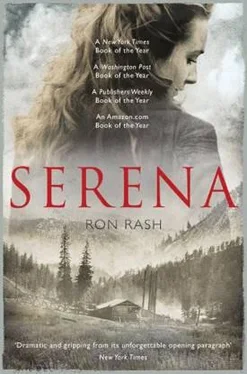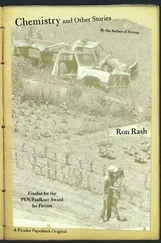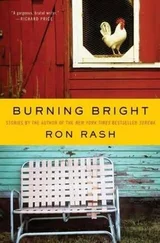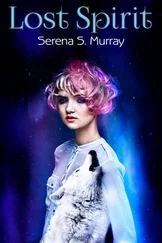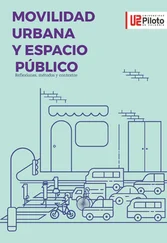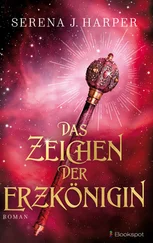"I got something in the shed I bet he'll like," Kephart said.
Rachel followed him behind the cabin. He opened the shed door. Inside two fox kits nestled against each other on a bed of straw.
"Something got their mama. There was another one, but it was too weak to live."
The kits rose, mewing as they came to Kephart, who scratched them behind their ears as he might pups.
"How do you feed them?" Rachel asked.
"Table scraps now. The first few days cow milk in a medicine dropper."
Jacob reached out his hand toward the kits, and Rachel stepped inside, kneeled as she held Jacob by the waist.
"Pet them soft, Jacob," Rachel said, and took the child's hand and brushed it over one of the kit's fur.
The other kit nudged closer, pressed its black nose against Jacob's hand as well.
"It's about time for them to go out and fend for themselves," Kephart said.
"They look fat and sassy enough," Rachel said. "You look to have been a good parent."
"It'd be the first time," Kephart said.
After a while, Rachel and Jacob went back to the front steps and watched as the afternoon settled into the gorge. It was the kind of early fall day Rachel had always loved, not warm or cold, the sky all deep-blue and cloudless and no breeze, the crops proud and ripe and the leaves so pretty but hardly a one yet fallen-a day so perfect that the earth itself seemed sorry to let it pass, so slowed down its roll into evening and let it linger. Rachel tried to lose herself in that, let it clear her mind, and for a few minutes she could. But then she'd think of Widow Jenkins, and she could just as well have been sitting in a hailstorm for the comfort the day gave her.
Soon shadows splotched the yard and began to spread. The air cooled and a breeze stirred the higher branches. In that breeze Rachel felt a tinge of the cold weather coming. Kephart went back into the cabin, and the typewriter's rat-tat-tat began. A few minutes later, as if in reply, the yellowhammer found a closer tree to peck. The typewriter's sound seemed to soothe Jacob, because he soon crawled into Rachel's lap and napped.
***
IT was early evening when Rachel heard footsteps coming up the path. The sheriff stepped into the clearing, a cardboard container slightly smaller and shallower than a cigar box in his right hand.
"Something for him when he gets fussy," the sheriff said, handing the container to Rachel. "Got them from Scott at the general store."
She set the container between her and Jacob, the contents shifting and rattling inside. Rachel lifted the lid and found it held marbles.
"Scott said there's cat eyes and solids and swirls. Some steel shooters in there too."
Kephart, who'd come out on the porch, shook his head and smiled.
"What?" McDowell asked.
"They're usually not shooting marbles till they're a tad older."
The sheriff's face reddened.
"Well, I guess he can grow into them."
"Look here, Jacob," Rachel said, and lifted the box slightly so marbles rolled and clacked. The child placed his hand inside, lifted as many as he could hold and let them drop back in. He picked up more, dropped them as well. Rachel watched to make sure he didn't put one in his mouth.
"We'd better go," Sheriff McDowell said, and stepped onto Kephart's porch to get the carpetbag.
"Just a moment," Kephart said, and disappeared into the cabin, came back with a gray wool sock. "There's only one thing for a boy to keep his marbles in, and that's a sock."
Kephart kneeled beside Jacob, the sock soon bulging with marbles. He knotted the sock above the heel.
"There. Now they'll not be spilling out like they would in that cardboard."
Rachel took the sock, its heft more than she'd imagined, at least a pound. She lifted Jacob with one arm and handed the sock to the child, who clutched it like a poppit-doll.
"Thank you for letting them stay here," Sheriff McDowell said.
"Yes, thank you," Rachel said. "It was a considerable kindness."
Kephart nodded.
They walked out of the yard and down the path. Rachel glanced back and saw Kephart watched from the porch, the mason jar now in his hand. He raised it slowly to his lips.
"Where's Mr. Kephart from?" Rachel asked once they had entered the woods.
"The midwest," Sheriff McDowell said. "Saint Louis."
When they got to the trail end, the police car had been replaced by a Model T Ford.
"This car will be less conspicuous," the sheriff said.
"I ain't got clothes and swaddlings but for two days," Rachel said as they drove out of the gorge. "Can we go by my cabin?"
The sheriff didn't say anything, but when the road forked a few miles later he turned toward Colt Ridge. The sheriff drove faster now, and the automobile's rapid motion seemed to make her mind move faster as well. So much had happened so quickly she hadn't even begun to take it all in. While she'd been at Kephart's cabin, it all hadn't felt quite real, but now what had happened to Widow Jenkins and what could have happened to her and Jacob came full at her, and it was like running ahead of a barn-high wave of water. Running hard to stay ahead of it, Rachel thought despairingly, because when it all did take hold of her she didn't know if she could bear the burden of it.
They parked next to the cabin. Rachel set Jacob on the ground beside the porch steps as the sheriff opened the trunk.
"We'll put the things you need in here," Sheriff McDowell said, following Rachel onto the porch. "I can help you carry out what you need."
"You think it could be a long while before we come back here?"
"Probably. Leastways if you want that child to be safe."
"There's a box trunk in the front room," Rachel said. "If you can fetch it I'll get the rest."
Rachel stepped inside, the cabin somehow different than when she'd left it last night. It appeared smaller, and darker, the windows letting in less light. Nothing had been disturbed that she could tell except that the loft ladder had been set upright. Thinking me and Jacob might have hid up there, Rachel knew. She gathered what she needed as quickly as she could, including Jacob's toy train engine. As she moved through the cabin filling the carpetbag, Rachel tried not to think about what could have been.
"I'll put that in the trunk for you," the sheriff said when she came outside. "You get the boy."
Rachel kneeled beside Jacob. She took the child's hand and pressed it to the dirt. Her father had told Rachel that Harmons had been on this land since before the Revolutionary War.
"Don't ever forget what it feels like, Jacob," she whispered, and let her hand touch the ground as well.
The woodshed's door was open, and a barn swallow swung out of the sky and disappeared into its darkness. A hoe leaned against the shed wall, its blade freckled with rust, beside it a pile of rotting cabbage sacks. Rachel let her gaze cross the pasture, the spring clotted with leaves, the field where only horseweed and dog fennel grew over winter-shucked corn stalks, no more alive than the man who'd planted them.
They got back in the car. As they approached the Widow's house, Rachel remembered the cradle her father had made.
"There's something I got to get from Widow Jenkins' house," she said. "It'll just take a second."
The sheriff pulled up beside the farmhouse.
"What is it?"
"A cradle."
"I'll go in and get it," the sheriff said.
"I don't mind. It ain't heavy."
"No," Sheriff McDowell said. "It's best I get it."
Rachel understood then. You'd have walked right in and not realized until you seen the blood or whatever else it is he don't want you to see, she told herself. But as Rachel watched the sheriff enter the front door, it was hard to believe the farmhouse itself was still there, because a place where something so terrible had happened shouldn't continue to exist in the world. The earth itself shouldn't be able to abide it.
Читать дальше
